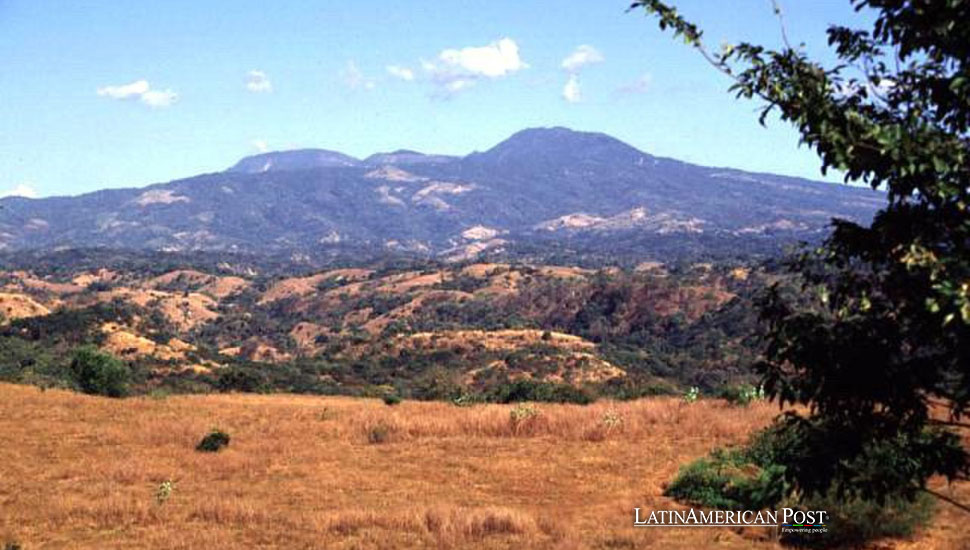El Salvador’s Volcanic Bitcoin Venture Aims for Sustainable Crypto Mining

Since 2021, El Salvador has mined 474 bitcoins using geothermal energy from the Tecapa volcano, showcasing a pioneering green initiative in cryptocurrency. According to official data from the country’s Bitcoin Office, the mine has accumulated nearly $354 million.
In a groundbreaking fusion of technology and nature, El Salvador has harnessed geothermal power from the Tecapa volcano to mine nearly 474 bitcoins since 2021, illuminating the nation’s pioneering approach to cryptocurrency. This venture not only underscores El Salvador’s unique strategy in harnessing renewable energy sources but also represents one of the most intriguing experiments in today’s global financial landscape.
Under the administration of President Nayib Bukele, an outspoken advocate of cryptocurrency, El Salvador made headlines in 2021 by becoming the first country to adopt Bitcoin as a legal tender. This controversial move, aimed at boosting economic inclusivity and attracting foreign investment, coincided with the country’s deeper exploration into cryptocurrency mining powered by volcanic energy. This project has since captivated the global crypto community.
The Mechanics of Volcanic Bitcoin Mining
This initiative’s heart is the state-owned geothermal power plant near the imposing Tecapa volcano, which generates 102 megawatts (MW) of power. Of this, 1.5 MW is dedicated exclusively to bitcoin mining. The process of using geothermal energy for bitcoin mining involves harnessing the heat from the volcano to produce steam, which is then used to power turbines and generate electricity. This electricity is then used to run the mining equipment, which involves solving complex mathematical equations to verify transactions and secure the network. This process is notoriously energy-intensive. By tapping into geothermal energy, El Salvador aims to mitigate the environmental impact typically associated with crypto mining, which has been criticized globally for its high energy consumption and resultant carbon emissions.
El Salvador’s approach offers a blueprint for sustainable cryptocurrency mining. By using renewable energy, the country reduces the carbon footprint associated with digital currency operations. This not only helps to mitigate climate change but also positions El Salvador as a leader in sustainable technology. It sets a precedent for nations to leverage natural resources to participate in the digital economy without exacerbating environmental degradation. Moreover, the economic benefits of this strategy are significant. By accumulating bitcoins through mining, El Salvador is building a substantial digital asset reserve, which could potentially boost the country’s economic stability and resilience.
This venture holds significant economic promise. With the government’s accumulation of 5,750 bitcoins, valued at nearly $354 million, El Salvador is poised to lead the global shift towards decentralized digital currencies. However, this strategy is not without risks, given the notorious volatility of cryptocurrencies and the significant financial investment required to maintain and expand mining operations.
Criticism and Challenges
The decision to adopt Bitcoin as legal tender was met with skepticism and concern from various international bodies, including the International Monetary Fund (IMF), which warned of potential problems relating to financial stability and consumer protection. The IMF expressed concerns about the potential for increased money laundering and financial instability. Domestically, the move has been polarizing, with proponents highlighting its potential to reduce dependency on traditional banking systems and detractors warning of speculative risks and economic instability. These reactions highlight the global and local implications of El Salvador’s Bitcoin adoption.
Moreover, while the environmental impact of using geothermal energy for bitcoin mining is relatively low, the sustainability of this practice in the long term, significantly as mining difficulties and energy requirements increase, remains a subject of debate among experts.
El Salvador’s foray into cryptocurrency is part of a larger trend in Latin America where countries are exploring digital currencies as a way to solve economic issues, such as inflation and capital controls, and to increase financial inclusion among underserved populations. Venezuela and Argentina, for example, have also shown interest in cryptocurrencies, though their approaches and circumstances differ significantly.
Looking Ahead
The world is on the edge of its seat as El Salvador continues to navigate the complexities of its pioneering digital currency policy. The success or failure of its volcanic bitcoin mining project could shape global policies on cryptocurrencies and renewable energy usage in digital finance.
Moreover, the country’s Bitcoin Office reports collaborations with major cryptocurrency miners like Foundry USA and Binance Pool, indicating a growing international interest in El Salvador’s experiment. These partnerships mitigate some of the risks involved and foster a more collaborative approach to the challenges of crypto mining.
Also read: El Salvador Building Airport Hotel via Blockchain Technology
El Salvador’s integration of volcanic geothermal energy into Bitcoin mining is an audacious experiment at the intersection of renewable energy and financial technology. It reflects a broader attempt by the nation to redefine its economic and environmental landscape. While the project promises a greener blueprint for mining cryptocurrencies and could transform El Salvador into a hub for sustainable crypto operations, it also tests the waters of economic innovation and its ripple effects on national and global scales. The outcomes of this venture will likely resonate well beyond the borders of this small Central American country, offering valuable lessons on the viability of cryptocurrencies and the potential of renewable energy in the digital age.





